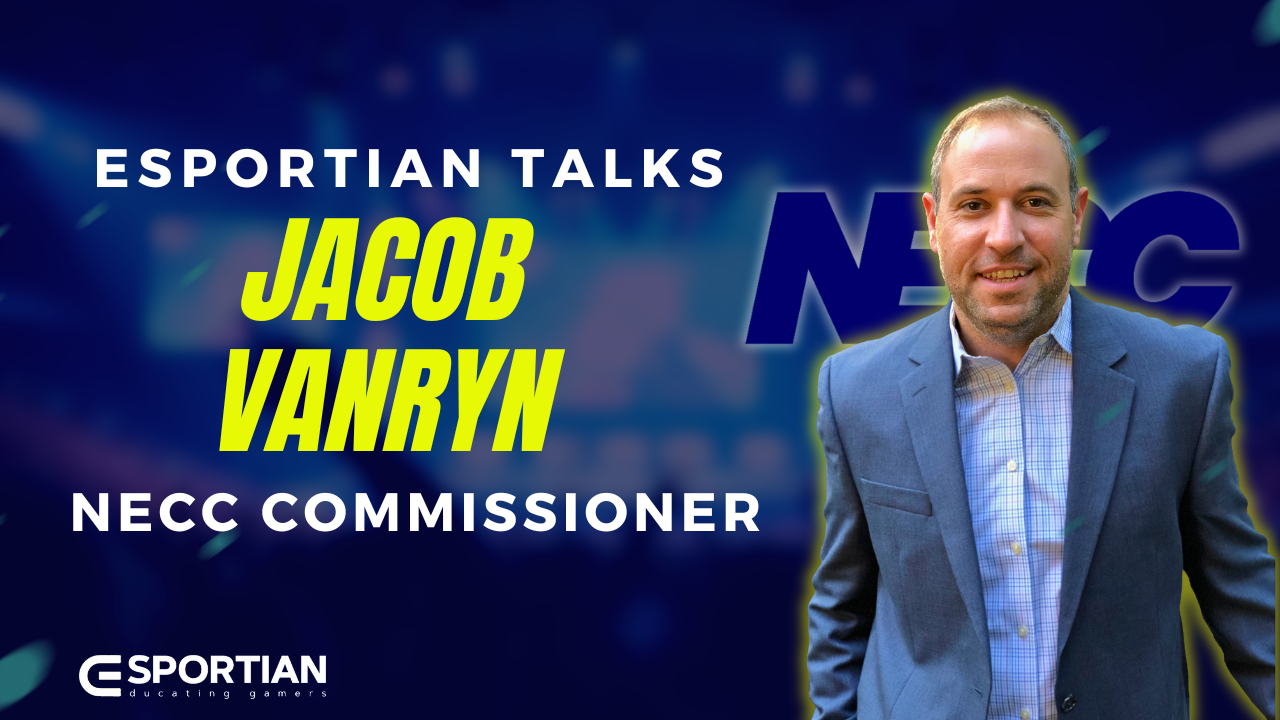Jacob VanRyn , with 20+ years in traditional college athletics, launched the National Esports Collegiate Conference five years ago. Though new to esports, he embraced the challenge and has grown the conference to support over 500 institutions across North America spanning two- and four-year colleges, D1–D3 schools, Canadian and Puerto Rican programs.
1. What Sets NECC Apart?
Divisional model based on skill, not school size: Teams are placed in competitive tiers to ensure balanced matchups, just engaging competition.
NECC doesn’t demand exclusivity. Schools choose to compete semester by semester, ensuring genuine commitment and quality experiences.
2. Plans for Expansion & Innovation
Every fall semester surpasses the previous, and NECC plans to build on that momentum through 2026 and beyond.
Enhancing team placement, rescheduling workflows, and infrastructure to support growing participation.
3. Supporting Institutions, Athletes & Sustainability
Upgraded from 24‑hour to 7‑day notice and mandatory subs ensure consistent matches and reliability.
Schools are guided to define their own success metrics: team performance, graduation rates, student retention helping justify investment and track progress.
From faculty advisors to specialized coaches per game title, programs gain stability beyond student-run models.
4. New Titles, Outreach & Inclusivity
NECC polls its schools before adding titles. Recent additions like Apex Legends via Electronic Arts (EA) or Marvel Rivals result from active publisher partnerships.
Focus on respectful culture has made NECC a welcoming environment, with few behavioral incidents.
5. Vision for Structured Collegiate Esports
Rather than focus solely on game streams, NECC is building athlete-driven narratives showcasing student champions and their impact on campus.
Offering certification, internship, and coaching opportunities to prepare students for careers in esports and adjacent industries whether they pursue pro play or not.
In a young ecosystem, directors openly share strategies and lessons across programs supporting each other’s growth before competition intensifies.
Jacob’s vision is clear: build a robust, human-centered esports ecosystem on college campuses. From carefully tiered competition to player empowerment and infrastructure for long-term sustainability, NECC demonstrates how structured interpersonal support, innovation, and inclusivity can elevate collegiate esports to mainstream success. Keep an eye on NECC, it’s reshaping how college esports can and should work.
Watch Full Interview
1. What Sets NECC Apart?
Divisional model based on skill, not school size: Teams are placed in competitive tiers to ensure balanced matchups, just engaging competition.
NECC doesn’t demand exclusivity. Schools choose to compete semester by semester, ensuring genuine commitment and quality experiences.
2. Plans for Expansion & Innovation
Every fall semester surpasses the previous, and NECC plans to build on that momentum through 2026 and beyond.
Enhancing team placement, rescheduling workflows, and infrastructure to support growing participation.
3. Supporting Institutions, Athletes & Sustainability
Upgraded from 24‑hour to 7‑day notice and mandatory subs ensure consistent matches and reliability.
Schools are guided to define their own success metrics: team performance, graduation rates, student retention helping justify investment and track progress.
From faculty advisors to specialized coaches per game title, programs gain stability beyond student-run models.
4. New Titles, Outreach & Inclusivity
NECC polls its schools before adding titles. Recent additions like Apex Legends via Electronic Arts (EA) or Marvel Rivals result from active publisher partnerships.
Focus on respectful culture has made NECC a welcoming environment, with few behavioral incidents.
5. Vision for Structured Collegiate Esports
Rather than focus solely on game streams, NECC is building athlete-driven narratives showcasing student champions and their impact on campus.
Offering certification, internship, and coaching opportunities to prepare students for careers in esports and adjacent industries whether they pursue pro play or not.
In a young ecosystem, directors openly share strategies and lessons across programs supporting each other’s growth before competition intensifies.
Jacob’s vision is clear: build a robust, human-centered esports ecosystem on college campuses. From carefully tiered competition to player empowerment and infrastructure for long-term sustainability, NECC demonstrates how structured interpersonal support, innovation, and inclusivity can elevate collegiate esports to mainstream success. Keep an eye on NECC, it’s reshaping how college esports can and should work.
Watch Full Interview
